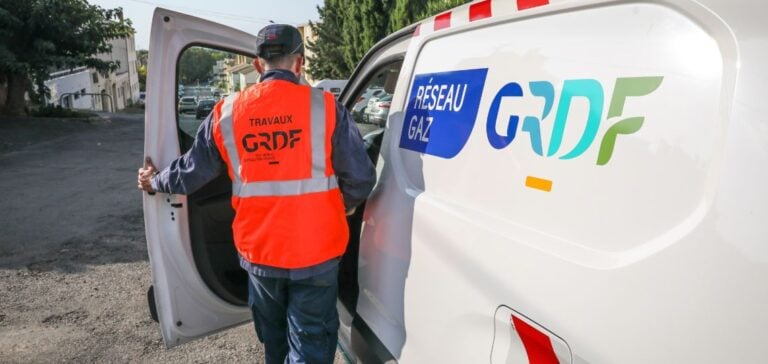The mobilization of GRDF employees, marked by a day of strikes, saw around 10.5% of workers respond to the call from the CGT, the primary union for the French natural gas distributor. Confirmed by management, this figure highlights growing discontent over economic choices driven by a decreasing number of gas subscribers and regulatory restrictions aimed at environmental protection.
Employees’ fears stem from projections of significant job cuts. During a meeting on the transport sector, which includes call centers between GRDF and gas suppliers, the figure of 264 job cuts was mentioned, according to Sébastien Raya, central union representative for CGT at GRDF. The management has not disputed this number but has refrained from providing official figures.
Impact of Environmental Regulation
The implementation of the environmental RE2020 regulation, which prohibits the installation of gas boilers in new homes, directly affects GRDF’s connection activities. The reduction in project volume and new subscriptions impacts the workforce involved in these operations, highlighting a potential threat to jobs. “There is a lack of ambition from GRDF on employment,” says Sébastien Raya, expressing employees’ concerns over what they consider to be a drastic cost-saving plan.
The CGT also points to a planned reduction of payroll by €180 million over four years, translating to a potential 15% cut in the workforce, or approximately 2,200 positions out of the current 11,500 jobs. While management disputes this estimate, it acknowledges that performance efforts will be required under ATRD7, the tariff paid by suppliers for the 2024-2028 period.
The ATRD7 Tariff Component and its Implications
The ATRD7 tariff, which accounts for about a third of the gas bill, is designed to finance the maintenance and modernization of gas infrastructure. However, with the gradual decline in the number of subscribers—a decrease of 197,000 between the end of 2022 and the end of 2023, according to the Energy Regulation Commission (CRE)—costs are increasingly concentrated among remaining customers. This situation adds pressure on GRDF, which must integrate green gas while achieving savings to remain competitive.
A Perspective of Declining Gas Consumption
According to the latest prospective report by the gas industry, gas consumption in France could decrease by 30% by 2035, due to energy efficiency and conservation measures. While positive from an environmental perspective, this forecast raises concerns among GRDF employees who fear a decline in activity and reduced employment.
Discussions between management and union representatives are ongoing. A follow-up meeting is scheduled for November 12 to address the roles of field sales representatives, who are also affected by the planned job cuts. The CGT hopes to secure clearer commitments to safeguard jobs at risk from ongoing reforms while supporting the transition to greener practices.






















